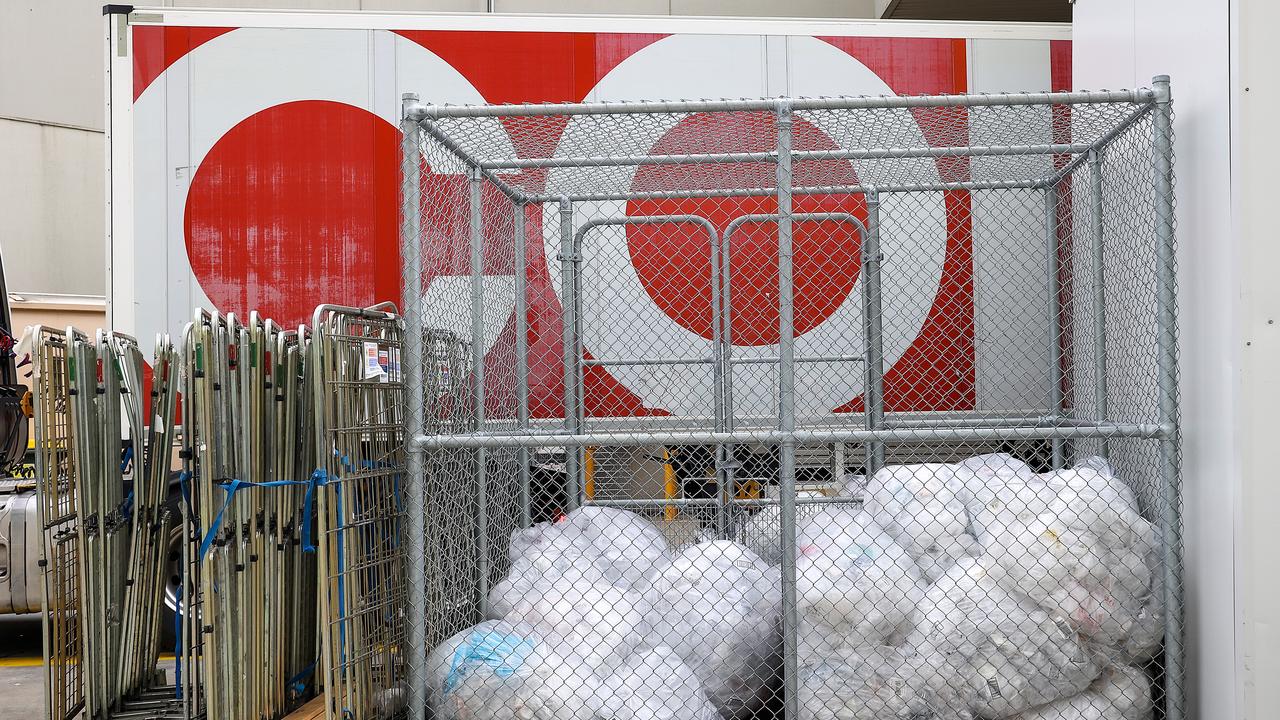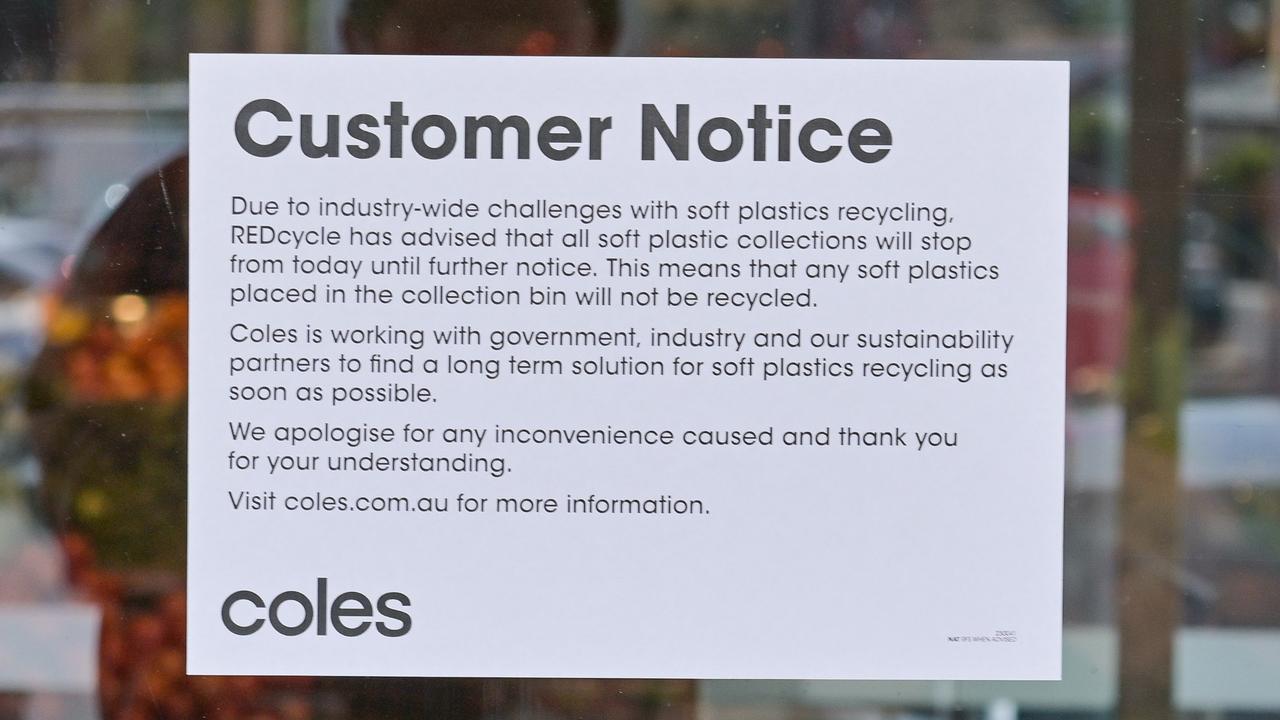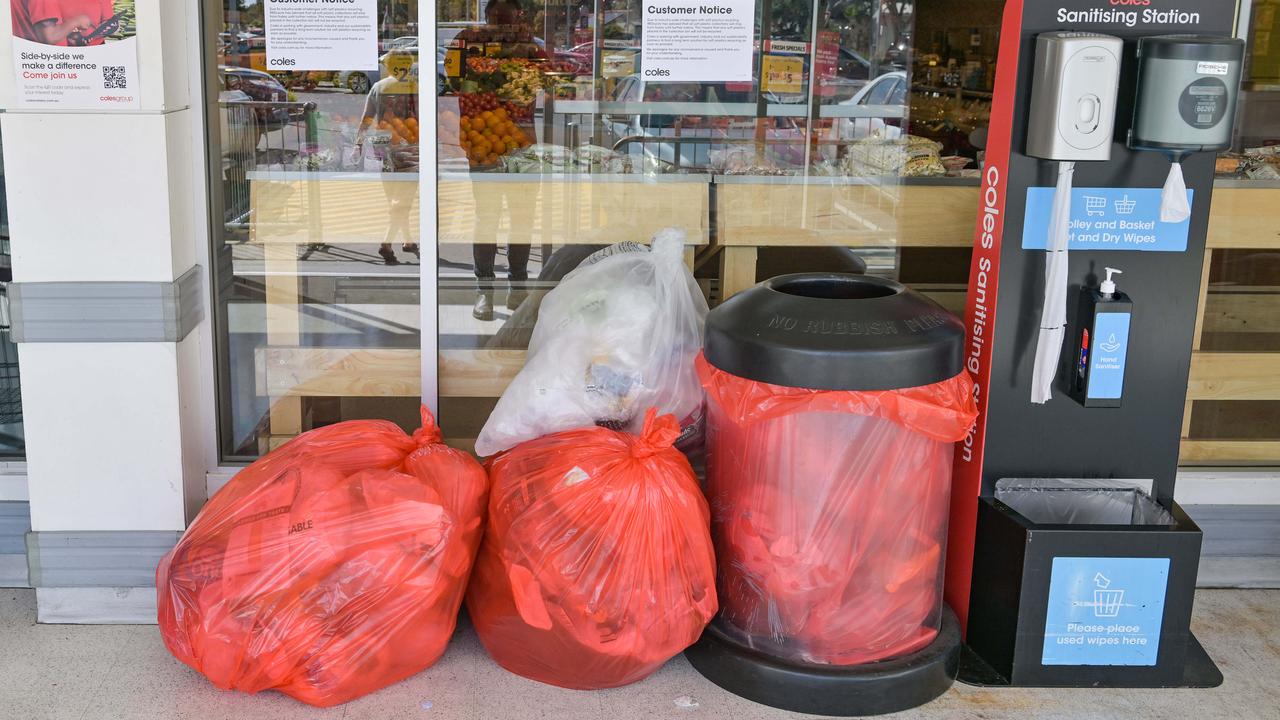Supermarkets refused extension to clear soft plastics from high-risk sites
Coles and Woolworths will have to adhere to original disposal deadlines of soft plastics after a failed recycling scheme.
Major NSW supermarkets will be forced to remove stores of soft plastics by May 12 after a possible extension on the deadline was rejected.
The NSW Environment Protection Authority’s decision came on Monday after Coles and Woolworths failed to dispose of stockpiles across eight high-risk sites, 10 weeks after receiving final clean-up notices.
There still remains 5200 tonnes of soft plastic in storage, posing potential fire and pollution risks.


REDcycle, a failed soft plastics recycling program, was shut down in November last year after it came to light that supermarkets were simply storing the material returned by customers in store instead of recycling it.
Forty-four stockpiles were found across 19 sites in NSW, 15 in Victoria, six in South Australia, two in Tasmania and one in both Queensland and Western Australia.

NSW Environment Minister Penny Sharpe said the supermarket giants “have to act” to address the risks the soft plastic stashes posed to the community.
“Once the immediate risks are removed, the government will shift to working with industry on long-term sustainable solutions for plastic packaging,” she said.
“Customers were diligent in recycling soft plastic and have been let down.
“It is my expectation that the retailers do everything they can to recycle as much stock as possible to restore customer confidence, and that is the message I am taking to the major supermarkets.”


More Coverage
Coles and Woolworths are also required to partake in developing a lawful solution for the plastic.
Despite orders to adhere to the original deadline across high-risk sites, both retailers were granted an extension by the EPA for the removal of stockpiles across seven low-medium risk locations.
The supermarkets are reportedly looking at shipping the material overseas as a disposal solution, warning that finding alternative recycling schemes could be a slow process.




